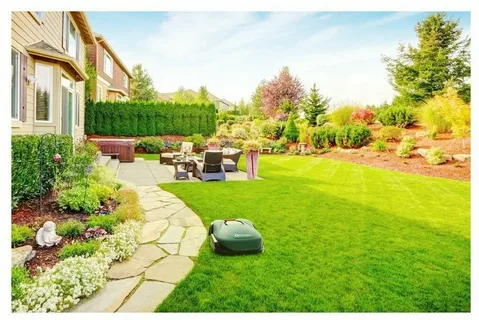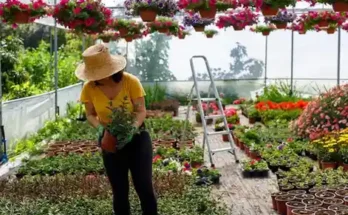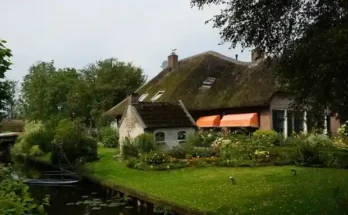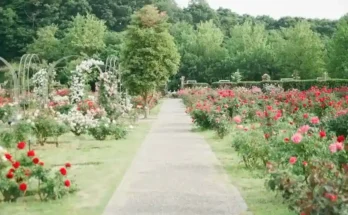A garden isn’t just a patch of land—it’s a heartbeat of nature nestled within our daily lives. Whether sprawling in a backyard or blooming in pots on a terrace, a garden has the power to transform both space and spirit. But to truly reap its rewards, a garden must be more than beautiful. It must be clean, germ-free, and cared for regularly. As our modern lives become more urbanized and digitally driven, the humble garden re-emerges as a quiet yet powerful sanctuary—one that both individuals and governments are beginning to value more than ever.
The Importance of a Garden:
In today’s world, where the concrete jungle often replaces natural greenery, having a garden is more than a luxury—it’s a necessity. Plants naturally purify the air by absorbing carbon dioxide and releasing oxygen. In a time when air pollution is becoming a health crisis, a garden is like a personal filter for cleaner, fresher air. Scientific studies confirm what nature lovers have always known: being around plants reduces stress. Just 10 minutes in a green space can significantly lower cortisol levels. A garden gives you a moment of stillness, a place to reconnect with the earth and yourself, and a healthy retreat from screens and stress.
Gardens also serve as miniature classrooms. Children can learn patience, responsibility, and biology, while adults get to practice mindfulness and physical activity. Whether it’s composting, pruning, or simply watering, gardening builds a deeper respect for life and natural cycles.
Cleanliness in the Garden:
-
The Hidden Threat of Germs
Many assume that because gardens are natural, they’re automatically safe. But soil, tools, stagnant water, and decaying plant matter can all become breeding grounds for harmful bacteria, fungi, and pests. Left unchecked, your peaceful garden could contribute to allergies, mosquito-borne diseases, or even infections through soil contact.
-
Keep Your Garden Germ-Free
To keep a garden not only beautiful but healthy, regular maintenance is key. Dead leaves and rotting fruits should be removed to prevent mold and pests. Composting should be managed properly to avoid attracting rodents or pathogens. Tools should be cleaned after use, and if pets have access to the garden, their waste must be cleared daily.
Clean water is also vital. Birdbaths and fountains should be refreshed frequently to prevent mosquito breeding, and any water storage should be covered and treated to remain safe. Hand hygiene after gardening should become second nature—especially when working with fertilizers or soil.
Gardening Frequency:
-
Tending to Nature’s Needs
Like any living being, a garden requires regular attention. Neglecting it for even a week can lead to overgrowth, pest infestations, or soil nutrient imbalance. Ideally, gardening should be a part of your weekly routine. Even 15 to 30 minutes every few days can make a dramatic difference in keeping your garden vibrant and well-maintained.
-
The Seasonal Rhythm
Gardening isn’t just about daily care—it’s also about seasonal planning. Spring and early summer are prime times for planting and growth, while fall may require more cleanup and composting. Winter may mean protecting plants from frost and planning for the coming year. Following nature’s rhythm helps you create a healthier, more productive garden over time.
The Social and Environmental Role of Gardens:
-
Greener Neighborhoods, Healthier Communities
Gardens are no longer just personal hobbies—they’re tools for community development. In many cities, community gardens are becoming safe gathering places that promote sustainability, local food systems, and social bonding. These shared spaces encourage neighbors to collaborate, share resources, and learn from one another.
-
Reducing Urban Heat and Pollution
Urban heat islands, caused by excessive concrete and limited greenery, contribute to higher temperatures and poorer air quality. Gardens help reverse this by providing shade, lowering surface temperatures, and acting as dust and pollutant filters. Every small green space adds up, especially in densely populated areas.
Government Involvement:
-
Policy Meets the Petal
Governments around the world are beginning to recognize the multifaceted value of gardens. In some regions, urban gardening is being incentivized through grants, tax rebates, or free supplies. Schools are being encouraged to develop green spaces not only for aesthetics but as outdoor classrooms. Cities are integrating vertical gardens, green roofs, and parks into urban planning to combat climate change and improve public health.
-
Campaigns and Clean-Up Drives
Public campaigns often highlight the importance of cleanliness in both public and private gardens. Events like “Clean Green Weeks” and “Urban Garden Days” aim to educate citizens on sustainable practices. Local authorities may even conduct soil testing, distribute compost bins, and promote safe water usage as part of their environmental policies.
Governments see gardens not just as aesthetic luxuries but as tools for ecological balance, mental health, food security, and even climate resilience. The message is clear: when citizens and government join hands in greening efforts, entire ecosystems—social and environmental—thrive.
A Garden Is an Investment in the Future:
Creating and maintaining a garden may seem like a lot of effort, especially in a world built on speed and convenience. But the long-term benefits far outweigh the labor. Gardens reduce food bills, enhance property value, and improve overall well-being. They teach patience and presence in a world that’s always rushing. And perhaps most importantly, they restore our forgotten relationship with nature.
A garden gently reminds us that we are stewards of the planet. What we sow, we reap—not just in plants, but in the kind of world we pass down to future generations. Clean, well-maintained gardens reflect care, discipline, and respect for life. In a world riddled with pollution, concrete, and climate anxiety, gardens are silent warriors of hope and healing.
Conclusion:
A garden is a reflection of how we treat our world—and ourselves. If we neglect it, disease, disorder, and decay will follow. But with love, attention, and intention, a garden becomes a thriving microcosm of life. It heals the air we breathe, nurtures our food, balances our emotions, and beautifies our homes.
In a way, to grow a garden is to grow a better version of ourselves. And when governments, communities, and individuals all pitch in, we don’t just grow plants—we grow possibilities. So pick up that trowel, roll up your sleeves, and start digging. Because the future truly begins in the garden.




